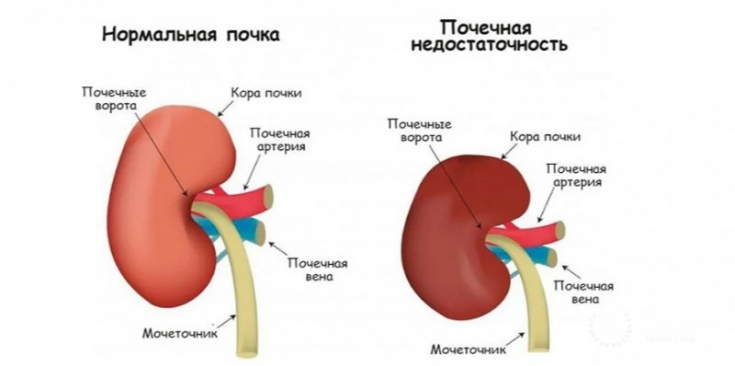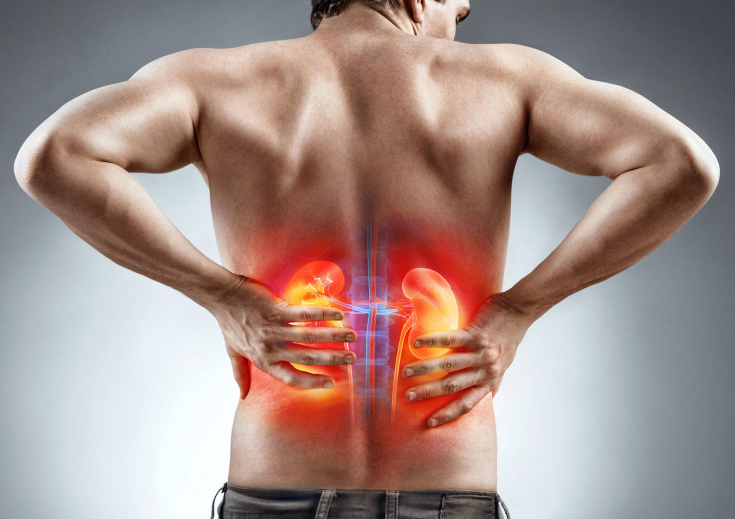When pressure rises, the first thing that comes to mind – These are malfunctions of the heart muscle. But blood pressure can rise against the background of disorders of the cardiovascular system, as well as as a result of improper functioning of the kidneys. The mechanism of blood circulation in the body is provided not only by the heart, but also by the kidneys. In addition, vascular tone is of no small importance in the process of pumping blood.
Renal hypertension is accompanied by an increase in diastolic pressure (except for arterial pressure). This disease is difficult to treat due to the high incidence of malignant hypertension. Most often, renal hypertension develops in men, affecting young people. Consider on estet-portal.com the features of the course of the disease and the treatment of renal hypertension.
- Causes and symptoms of renal hypertension
- How does renal hypertension proceed: diagnosis and features
- What treatment should be taken for renal hypertension
Causes and symptoms of renal hypertension
The first symptom of renal hypertension is persistent high blood pressure (over 200 mmHg) and general weakness. There is also a rapid heartbeat, there may be an acute or aching headache. Due to the fact that water gradually begins to accumulate in the body, the body swells. The disease most often affects young people or develops in old age.

Renal hypertension develops against the background of diseases associated with the kidneys: chronic pyelonephritis, glomerulonephritis, polycystic kidney disease, systemic vasculitis, nephropathy. Often, renal hypertension occurs against the background of diabetes mellitus.
How does renal hypertension proceed: diagnosis and features
The kidneys are designed to filter arterial blood, remove excess water from the body, sodium ions and metabolic products.
How pressure is formed: the vessel that supplies blood to the kidneys for filtration is larger in diameter than the vessel that carries the filtered blood. The filtration process occurs in the renal glomeruli, after which the blood enters the artery. The first thing that serves as the starting point of renal hypertension – this is a decrease in blood flow to the kidneys, which leads to a violation of the glomerular filtration process.
Subscribe to our page on Instagram!
Thus, the pressure drops, and renin enters the blood, which is converted into angiotensin – a substance capable of constricting blood vessels.
Angiotensin also stimulates the production of aldosterone, which is an adrenal hormone that has the ability to retain water and sodium in the body. A discrepancy between the amount of circulating blood and the volume of vessels begins.
Renal hypertension very rarely provokes a heart attack, stroke or hypertensive crisis. The treatment of renal hypertension is not easy, it is difficult to eliminate all symptoms and recovery occurs after a long and painful use of all the necessary drugs and techniques.
How to diagnose secondary arterial hypertension?
To find out if the high blood pressure is related to the kidneys or the heart, it is necessary to undergo a comprehensive examination and pass a general analysis or be able to test for Nechiporenko, as well as conduct a bacterioscopy of the urinary sediment. In addition, it is worth doing a detailed blood test. MRI of the adrenal glands should be done to confirm the diagnosis. What treatment should be taken for renal hypertension
The treatment of renal hypertension can take a long time, sometimes it is very difficult to alleviate a person's condition. With renal hypertension, this organ cannot function effectively and kidney failure may develop, which worsens the condition and makes the treatment process laborious. Treatment of renal hypertension should be directed in the following ways: elimination of imbalance in the pumping of blood by the kidneys, normalization of pressure, and improvement of the excretory function of the kidneys. If the cause of the increase in pressure is a narrowing of the artery, doctors may recommend surgery to repair the defect in the vessel.

In addition to the medications used, it is recommended to adhere to a strict diet, which strictly prohibits the use of table salt in large quantities. Also remove spicy, smoked, canned food from your diet. No self-medication for renal hypertension will be effective and can lead to kidney failure, as well as lead to heart and kidney failure. The need for surgery or other intervention and the use of drugs should only be recommended by a doctor based on an examination and finding out the causes of the disease.
More useful information on our channel in
Youtube:








Add a comment